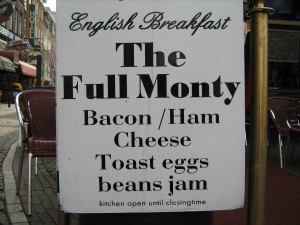This question of ‘refugee journalism’ in an ideal journalistic sense set me thinking when I read an article about ‘Bhutan’s way of ethnic cleansing’, http://www.exponto.nl/mags/003_004/exPonto03.pdf , which appeared in Ex Ponto magazine, web/print magazine written by refugee journalists for the Dutch media. This article is written by Nanda Gautam, a Bhutanese refugee working for OHM, a national TV channel for the Dutch Hindu communities. Of course, I do respect his opinion but his article contains some wrong information. For instance, he says that the ‘newly written Constitution is drafted without including representatives from the Lhotshampa community’, the minority group in Bhutan. This is not true. There were three representatives from the Lhotshampa community. They were elected by the people as their representatives.
And also Gautam writes that the Constitution does not incorporate religious, cultural sentiments of the Hindus nor the rights of the minorities. This again is not true. According to Article 7 (4), every ‘Bhutanese citizen shall have the right to freedom of thought, conscience and religion’.
According to the new Constitution, there shall be no more than three ministers from one region. And, in the current parliament there are eight directly elected MPs from the Lhotshampa community. Of these elected members, two are ministers (in-charge of Education and Communications portfolios) and one is Deputy Speaker.
The question that rises here is of the objectivity and the credibility of both the magazine and the journalist. As I said earlier, that I have nothing against the author or the magazine, nor do I want to undermine role of refugee journalists. In fact, I appreciate the fact that a magazine like Ex Ponto is creating a platform for the unheard voices. But, as journalists, we have to keep in mind what JOURNALISM is all about, don’t we?
We have discussed at length the issues of minority journalists, in the class and elsewhere. Through our instructors, guest speakers and from the readings we now have some idea of how one feels to be a minority journalists or a minority working for the mainstream media. We have also discussed the question of ‘detachment and disinterestedness’, ethics, belongingness and sensationalism as some of the major drawbacks for minority media and minority journalists. But what about refugee journalists? So, how different is ‘refugee journalism’ from ‘minority journalism’?
